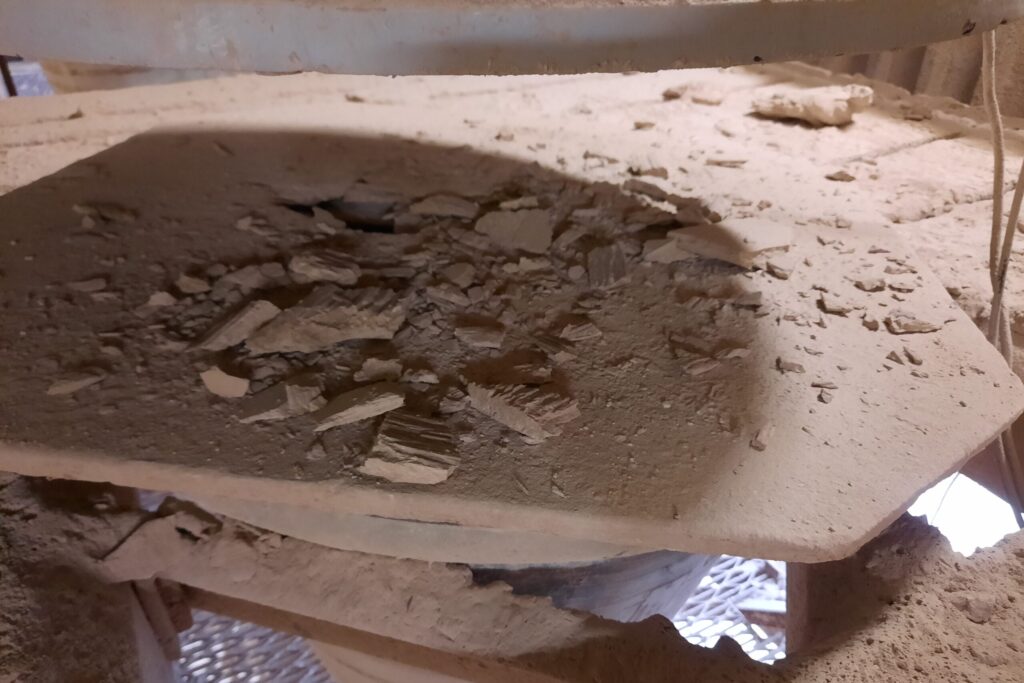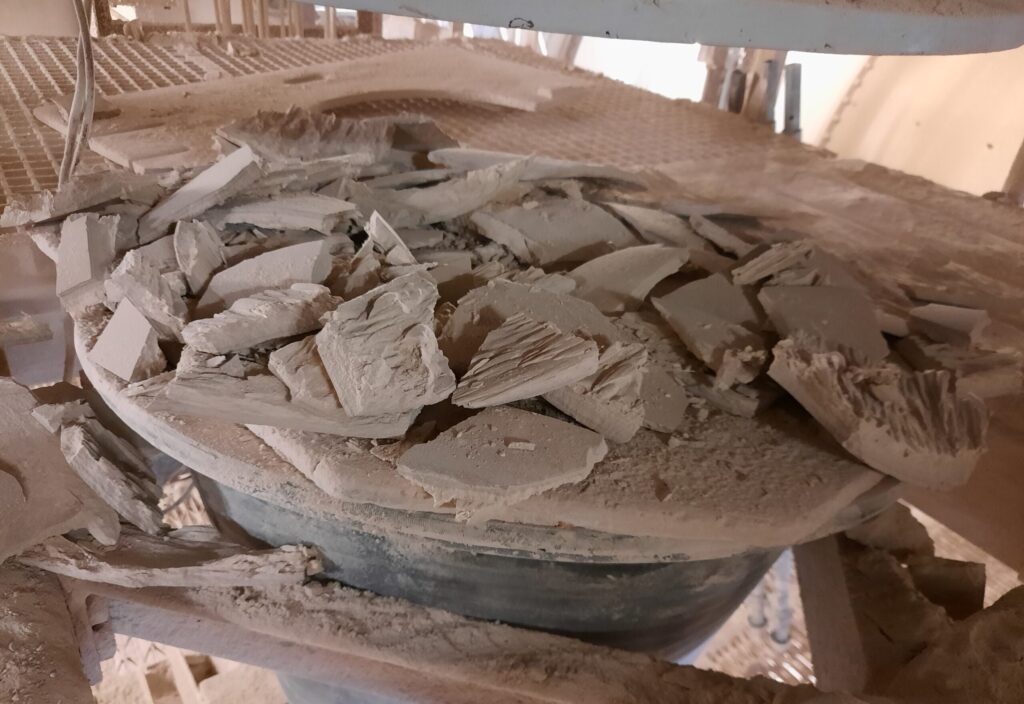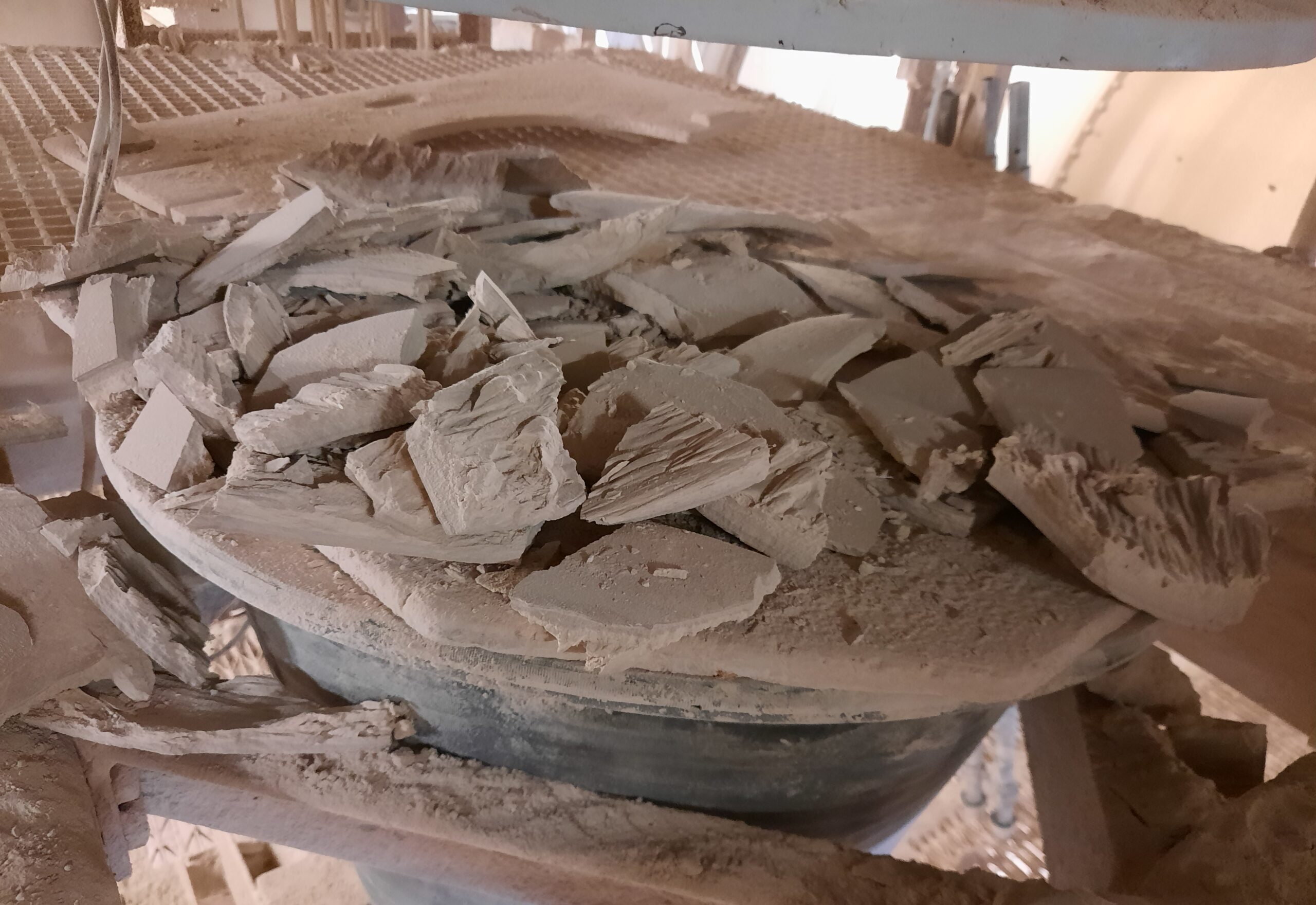Scaling (inorganic and organic hard-scaling) is a common problem in the industry. It can cause blockages in pipework or other systems. This in turn can cause a lot of (often unexpected) maintenance and a temporary production stop. It therefore keeps many R&D departments busy to improve internal production processes.
At a fertilizer manufacturer in Europe, cyclones separate dust from air by means of cylindrical air streams. During a product change, the warmer air comes to a temperature below the dew point, causing the substance to stick to the wall of the cyclone. This forms a small layer that then hardens. Because a product change takes place several times a day, several layers quickly arise on top of each other. The cyclones should be cleaned every 4 weeks. During an inspection, the ‘growth rings’ (comparable to annual ring tree) could literally be counted.
Cleaning the cyclones is also a risky task. A number of employees have to pound with a heavy sledgehammer to bring the cyclone into resonance. Once in resonance, the scaling slowly begins to release. In addition, the cyclones are on a floor where it is not possible to stand upright. This obviously puts a lot of strain on the human body, which can result in chronic physical injury.
This is one of the main reasons to look for alternatives. The company has enlisted the help of LSC to tackle the problem in an environmentally friendly, sustainable way.
By introducing miniscule ultrasonic vibrations, the fabric is prevented from bonding. It sticks to the inside of the cyclone, but with a light tap with the hammer comes off easily in large pieces. The untreated cyclone, on the other hand: only after 15 minutes of full force beating, this results in pulverized scaling and a relatively clean, but damaged cyclone.
In addition to the fact that it hardly takes any work to clean the cyclone, this also extends the life of the cyclone against which it is used.




